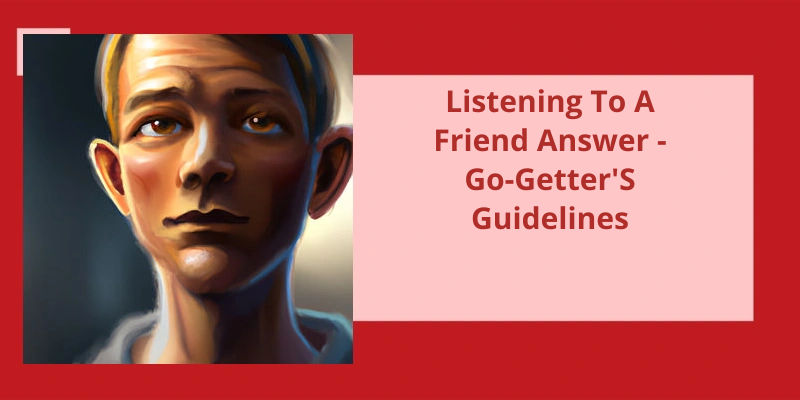The art of communication is one that’s often underappreciated. The words we choose to use and the way we choose to use them can have a significant impact on those around us. Unfortunately, there are times when individuals choose to use their words as weapons, rather than as a means of connection. Belittling is a particularly toxic form of communication that involves putting another person down in order to elevate oneself. While it may seem like an effective way to assert dominance, in reality, belittling is damaging for both the person on the receiving end and the person doing the belittling.
Why Do People Pick on Others to Make Themselves Feel Better?
One possibility is that they may have experienced similar treatment themselves and feel a need to pass it on. Another is that they may see someone who they perceive as weaker or less accomplished than themselves and feel a sense of superiority by putting them down. In some cases, people may do it simply to fit in with a group or to gain approval from others.
It’s important to recognize that there’s never a valid excuse for picking on someone else. While we may all have our moments of insecurity or jealousy, it’s never okay to make someone else feel bad in order to feel better about ourselves. In fact, doing so only perpetuates a cycle of negativity that can harm not only the person being picked on, but also those doing the picking.
One way to combat this behavior is to practice empathy. When we make an effort to understand someone elses point of view and the challenges they may be facing, it can help us to be more compassionate and less likely to judge or put them down. It’s also important to build our own self-esteem in healthy ways, rather than relying on putting others down to feel better about ourselves.
Ultimately, we all have the power to choose how we treat others. By focusing on kindness and empathy, we can create a more positive and supportive environment for everyone. So lets make the choice to lift each other up and celebrate our differences, rather than tearing each other down.
The Effects of Bullying and Picking on Others on the Mental Health of Both the Victim and the Perpetrator
This article explores the impact of bullying and picking on others on the mental health of both the victim and the perpetrator. It discusses how such behaviors can lead to anxiety, depression, and other mental health problems for both parties. It also highlights the importance of early intervention to prevent long-term consequences.
One of the most common forms of social aggression is putting others down. This can take various forms, such as belittling someone’s accomplishments, making fun of their physical appearance, or mocking their opinions. Such behavior is hurtful and damaging, and can have lasting effects on a person’s self-esteem and confidence. In this article, we will explore the root causes of putting others down, why people engage in it, how to recognize it, and what steps you can take to deal with it.
What Does Putting Other People Down Mean?
Putting other people down is a common form of bullying and abuse that can take many different forms. It can involve insults, name-calling, mocking, and other hurtful behaviors that aim to make someone feel inferior or unworthy. When someone puts another person down, they’re intentionally trying to humiliate or belittle that person in front of others or to make them feel bad about themselves. This can have serious emotional and psychological effects on the victim, leading to low self-esteem, depression, and anxiety.
One of the most damaging aspects of putting other people down is that it can become a habit that’s hard to break. People who engage in this behavior may do so without realizing the negative impact it’s having on those around them. They may use humor or sarcasm as a way to mask their insults, which can make it even harder for the victim to speak up and defend themselves. Over time, this can lead to a toxic environment where people are constantly criticizing and tearing each other down.
Another common form of putting other people down is through gossip and spreading rumors. When someone spreads false or negative information about another person, they can damage their reputation and cause others to view them in a negative light. This can be especially harmful in professional settings, where a persons reputation can impact their career and livelihood. Gossiping can also create a sense of mistrust and competitiveness in a workplace or social setting, leading to a toxic environment that’s difficult to navigate.
In order to combat the negative effects of putting other people down, it’s important to cultivate a culture of kindness and respect. This means encouraging people to speak up against bullying and to treat others with empathy and compassion. It also means modeling positive behaviors and encouraging others to do the same. By creating an environment where people feel safe and valued, we can help to prevent the damaging effects of putting other people down and create a more supportive and inclusive society. Ultimately, the key to combatting bullying and other forms of abusive behavior is through education, awareness, and a commitment to treating others with kindness and respect.
Strategies for Standing Up Against Putting Others Down and Promoting Positive Behavior.
- Speak up when you witness someone being put down.
- Encourage kindness and empathy in your social circle.
- Avoid gossiping or speaking negatively about others.
- Practice active listening and validate others’ feelings.
- Lead by example and model positive behavior in your interactions with others.
- Challenge your own biases and work to overcome them.
- Foster an inclusive and accepting environment wherever you go.
- Empower others to stand up for themselves and promote positive behavior.
- Remember that change starts with small, intentional actions.
Now that we’ve a basic understanding of what insults are, let’s delve deeper into how they can impact our mental health and relationships. It’s important to recognize when we’re being insulted and learn how to respond in a healthy and assertive manner.
What Is It Called When Someone Demeans You?
When someone demeans you, they’re essentially putting you down and making you feel inferior or worthless. This type of behavior can be incredibly damaging to your self-esteem and can leave you feeling isolated and unsupported. Insults or put-downs come in many different forms, from subtle jabs or sarcastic comments to outright verbal attacks.
One of the key features of insults and put-downs is that they’re designed to make you feel small and powerless. This often involves belittling your accomplishments, mocking your appearance, or making derogatory comments about your personality or character. These types of insults can be particularly hurtful because they often target aspects of yourself that you hold dear, such as your intelligence or your sense of humor.
If you find yourself on the receiving end of insults and put-downs, it can be difficult to know how to respond. Some people may choose to ignore the behavior, while others may try to confront the person or defend themselves. Ultimately, the best approach will depend on the situation and your individual needs and preferences. It may be helpful to seek support from a therapist or trusted friend or family member to help you process your feelings and develop effective coping strategies.
In some cases, it may be necessary to distance yourself from the individual who’s demeaning you, particularly if the behavior is persistent or abusive. This can be a difficult decision to make, but it’s important to prioritize your well-being and safety above all else. Remember that you deserve to be treated with respect and dignity, and that there are resources available to help you navigate challenging situations and relationships.
It’s unfortunate but true that some individuals feel the need to put others down in order to boost their own self-esteem. This type of behavior is often indicative of deeper insecurities and can be very hurtful for those on the receiving end. In this article, we’ll explore the psychology behind this behavior and offer some strategies for dealing with it.
What Do You Call Someone Who Puts Others Down to Make Themselves Feel Better?
They may also be referred to as a bully or a narcissist who gains a sense of superiority by putting others down. Psychologists have coined the term “toxic people” to describe individuals who exhibit this type of behavior. These individuals often suffer from deep-seated insecurities and low self-esteem, leading them to resort to belittling others to feel powerful and in control.
People who put others down to make themselves feel better tend to be highly critical of themselves as well. They may have a distorted sense of self-worth, and their harsh self-criticism leads them to project their insecurities onto others. They may also have a tendency to compare themselves to others and feel threatened by those they perceive as more successful or attractive.
In addition to belittling others, those who seek to elevate themselves by putting others down may also engage in other forms of toxic behavior. They may try to control or manipulate others, or they may engage in passive-aggressive behavior in order to avoid direct confrontation. They may also be prone to gossiping or spreading rumors to undermine others reputations.
Dealing with individuals who put others down to make themselves feel better can be challenging. It’s important to maintain your own self-worth and not allow their toxic behavior to affect you. Setting healthy boundaries and avoiding engagement with these individuals can be effective strategies for protecting yourself from their negative impact.
While their behavior may be hurtful and damaging to those around them, it’s important to recognize that they’re suffering as well. Encouraging them to seek professional help and support to address their underlying issues may be a more effective approach than engaging with their toxic behavior.
Conclusion
It’s often used as a means of asserting dominance, gaining power, and projecting an inflated sense of self-worth by putting others down. Belittling behavior is unacceptable, and individuals who engage in this behavior must understand the harm it causes and take steps to rectify it. We must strive to create a culture where respect and dignity are at the forefront, and we work to uplift each other instead of tearing each other down. Let’s make a conscious effort to eliminate belittling behavior from our personal and professional lives and foster a more compassionate and inclusive society.






